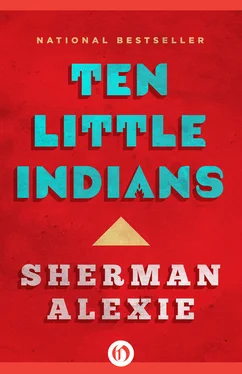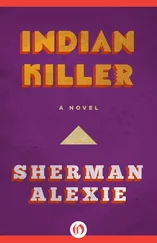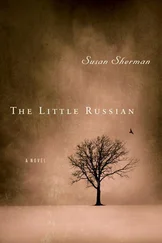Near the end of the summer of 1976, a few days before I went back to school, my mother decided to spend one last day with me.
“Special you-and-me time,” she said. “Before my best friend leaves me for the young women of Garfield High School.”
We woke early, ate banana and pecan pancakes at a dive on the waterfront, and shopped for new school clothes. I wanted tight jeans and T-shirts with TV stars printed on them; she bought me cords and white dress shirts.
“I’m going to get beat up,” I said.
“And all those boys who beat you up,” she said, “will be working for you when you grow up.”
She was wrong, of course; those tough boys run the trade unions and own the golf courses.
After shopping, we ate greasy hamburgers and french fries for lunch, told each other dirty jokes, and looked for the car. My mother and I have always been cursed with poor short-term memories, so we never remember where we park the car. I’ve been forced to ride the bus home from teaching because I can’t remember on which street I parked my car. I’m ashamed of my poor memory, but my mother was always amused by her eccentricities.
“I’m a kook, huh?” she said over and over while we searched for the car.
“Yes, you’re a kook, and I’m a kook,” I said.
“We’re a kooky couple,” she said. “We could start a cuckoo-clock company because we’re such a completely kooky couple.”
Oh, sometimes I felt like her son, and other times I felt like her boyfriend, and most times I felt like her willing audience, laughing when she wanted me to laugh.
A few minutes after five, right when the city was its busiest with rush-hour traffic and people, when so many commuters were so happy to be done with work, we found our car hidden between two delivery trucks. We’d walked past it ten or twelve times before finally spotting it. Even then, the car was wedged in too tightly to open the doors, so my mother had to climb through the open sunroof, then back the car out so I could get in.
“It’s a good thing your mother is a world-class gymnast,” she said.
“Mothers aren’t supposed to climb through sunroofs,” I said.
“Sexist fantasy,” she said and laughed and laughed.
The streets were packed with people. Five thousand, ten thousand people, more. Downtown Seattle was alive with color and noise. My mother drove the streets like she was the grand marshal of a parade. She waved and smiled. At stoplights, she poked her head out of the sunroof and praised the blue skies and the golden sun. She sang along with the radio and warbled so loudly and badly that pedestrians heard her and laughed or sang along with her for a few bars. My mother’s joy was infectious. She smiled and caused others to smile. Strangers smiling at strangers! It was no longer a city but a tribe!
And then I saw a woman cross against the light on Pike and Seventh. She wore a white dress.
She was beautiful and strong, with long blond hair hanging down past muscled and taut shoulders. A runner, maybe, a marathoner, a lovely kickboxer, I thought. She was a reader, too, swinging a book bag stuffed with paperbacks. I couldn’t see the titles, but I hoped she read an equal mixture of formal poetry and comic books. She was tall, almost six feet, I guessed, but was unashamed of her stature and walked with a graceful and perfect posture. She wore heels! I am tall with a decent and easy happiness, she seemed to say with her step, and I am getting taller and happier! Best of all, she wore that luminous white dress, lacy and conservative for the times, with the hem falling a few inches below her knees. I was in love, in love, in love, and then I saw the menstrual blood that stained the back of her dress, a line of dried blood that ran from her upper thigh down to the hem of the dress.
“Mom,” I said, but she’d already seen the blood, and we both saw the hundreds of people walking with and against this woman, and how many other hundreds of people had already walked with and against this woman and her blood?
“Mom,” I said, already crying, wanting to save this woman but unable to think how.
“I know, I know,” my mother said, but she was frozen. She slowed the car and drove close to the sidewalk, keeping pace with the woman, but that’s all she could do.
“Mom!”
“I know, I know!”
Of course other people noticed the blood. Some of the men and boys laughed and pointed. Some of the women gasped in horror and embarrassment and ran for shelter. Most people remained silent and kept walking, more interested in their own lives than in helping this woman with menstrual blood running down the back of her dress.
Oh God, I wondered if she was still bleeding and had left a trail of fresh blood behind her. Would she arrive at work in the morning and find the janitors scrubbing clean the carpet of her office? Would she have nightmares about birds swooping down to sip her blood from the sidewalk? Would she dream about hungry rats? And how long had she been bleeding? Did she start bleeding and staining her dress on her way to work? Had she been bleeding and staining her dress all day? Had she gone to lunch with her lover and stained the restaurant chair? Had she left evidence all over the city? How could she trust her friends and coworkers ever again? How could she walk through a city with so much blood staining her white dress and not be stopped by another human being? Would she lose her faith in people, in God, in goodness?
“Mom!” I cried and cried. “Mom! Mom!”
“I know! I know!” my mother screamed at me. She stopped the car but still could not find strength enough to open the door, run for the woman, and save her dignity.
“Mom!”
“I know!”
At that moment, an older woman ran a red light, steered her car across three lanes of traffic, and braked to a stop halfway onto the sidewalk. She exploded out of her car with a coat in her hands, wrapped it around the waist of the woman in the white dress, and rushed back to her car. The older woman ran another red light and drove away from the scene.
“Mom!” I shouted. I grabbed her arm, leaving a bruise that took two weeks to heal, and pulled her toward me. “Do something!” I shouted at her.
“I know!” my mother screamed and slapped me. “I know!” she screamed and slapped me once more and cut my face with her ring. She slapped me a third time, cutting me again, and she hugged me close and wept. I wept with her. We wept together while the city moved all around us, while one woman led another woman to safety.
My mother and I have loved and failed each other, and we keep on loving and failing each other, and one of us will eventually bury the other, and the survivor will burn down the church with grief’s hungry fire.
SHARON AND I WERE college sweethearts at St. Jerome the Second University in Seattle, or, as it is affectionately known, St. Junior’s. We met at the first mixer dance of our freshman year and soon discovered we were the only confirmed Native American Roman Catholics within a three-mile radius of campus, so we slept together that inaugural night, in open defiance of Pope Whomever, and kept sleeping together for the next three years. It was primary love: red girl and red boy on white sheets.
Sharon was Apache, and I was Spokane, but we practiced our tribal religions like we practiced Catholicism: We loved all of the ceremonies but thought they were pitiful cries to a disinterested god.
My white mother, Mary, bless her soul, raised me all by herself in Seattle because my Indian daddy, Marvin, died of stomach cancer when I was a baby. I never knew him, but I spent half of every summer on the Spokane Reservation with his mother and father, my grandparents. My mother wanted me to keep in touch with my tribal heritage, but mostly, I read spy novels to my grandfather and shopped garage sales and secondhand stores with my grandmother. I suppose, for many Indians, garage sales and trashy novels are highly traditional and sacred. We all make up our ceremonies as we go along, right? I thought the reservation was ordinary and magical, like a sedate version of Disneyland. All told, I loved to visit but loved my home much more. In Seattle, my mother was a corporate lawyer for old-money companies and sent me to Lakeside Upper School, where I was a schoolmate of Bill Gates and Paul Allen, who have become the new-money kings of the world.
Читать дальше












